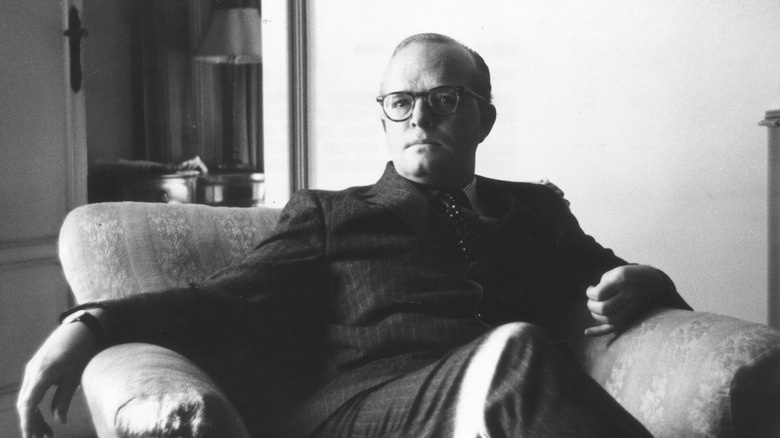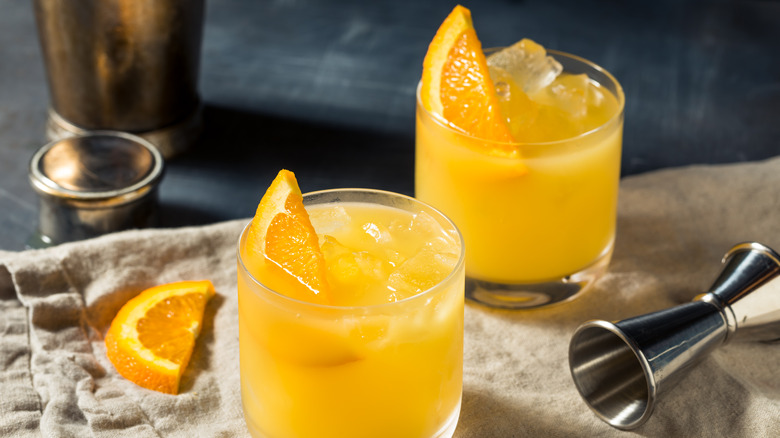Truman Capote's Favorite 'Orange Drink' Was The Classic Screwdriver Cocktail
With their crafty names and intricate lore, cocktails' affiliation with literature hardly comes as a surprise. Many writers have left their indelible mark on drinking culture, from Hemingway's sugar aversion inspiring a daiquiri riff to F. Scott Fitzgerald's beloved gin rickey appearing in "The Great Gatsby."
Innovative novelist Truman Capote also enjoyed a round — and often more — of slings himself, with several personal favorites. For a large portion of his career, smooth J&B Scotch was his liquor of choice, a scotch also beloved by Audrey Hepburn. However, later in life, he abandoned some of the boldly flavored creations, instead choosing vodka screwdrivers.
Affectionately naming them "my orange drink", he was a connoisseur, particularly about only utilizing the best vodka in the cocktail. He sourced exclusively Polish and Russian expressions, always combined with fresh orange juice. As a two-ingredient drink, such attention to detail is indeed critical for crafting the tastiest rendition.
Truman Capote enjoyed various vodka-based drinks, including screwdrivers
The screwdriver's origins point to the 1940s, likely a creation by American military men stationed abroad. As a simple and easily made drink, it may be a surprising choice for a celebrity socialite like Truman Capote, who once favored fine whisky. Vodka may have appealed to him due to its nearly flavorless quality, readily disguised in a wide array of mixers. And orange juice is a particularly good accompaniment, with its sugar and acid content ideal for mixing.
The author had a complicated relationship with alcohol with many binge-drinking tendencies, including during times of writing. It's impossible to say precisely how screwdrivers were part of the picture, but acquaintances observed the author transitioning to less spirit-forward drinks later in life. In addition to orange juice, he also paired soda and grapefruit juice with vodka.
An admitted alcoholic, the end of his career marked a troubled time, exacerbated by excerpts of his work published in Esquire magazine. Sourced from his final — and uncompleted — novel "Answered Prayers," these excerpts exposed the lifestyle of his elite friends, who ostracized him. A few years later, the author passed away from drug and alcohol-related health issues.

